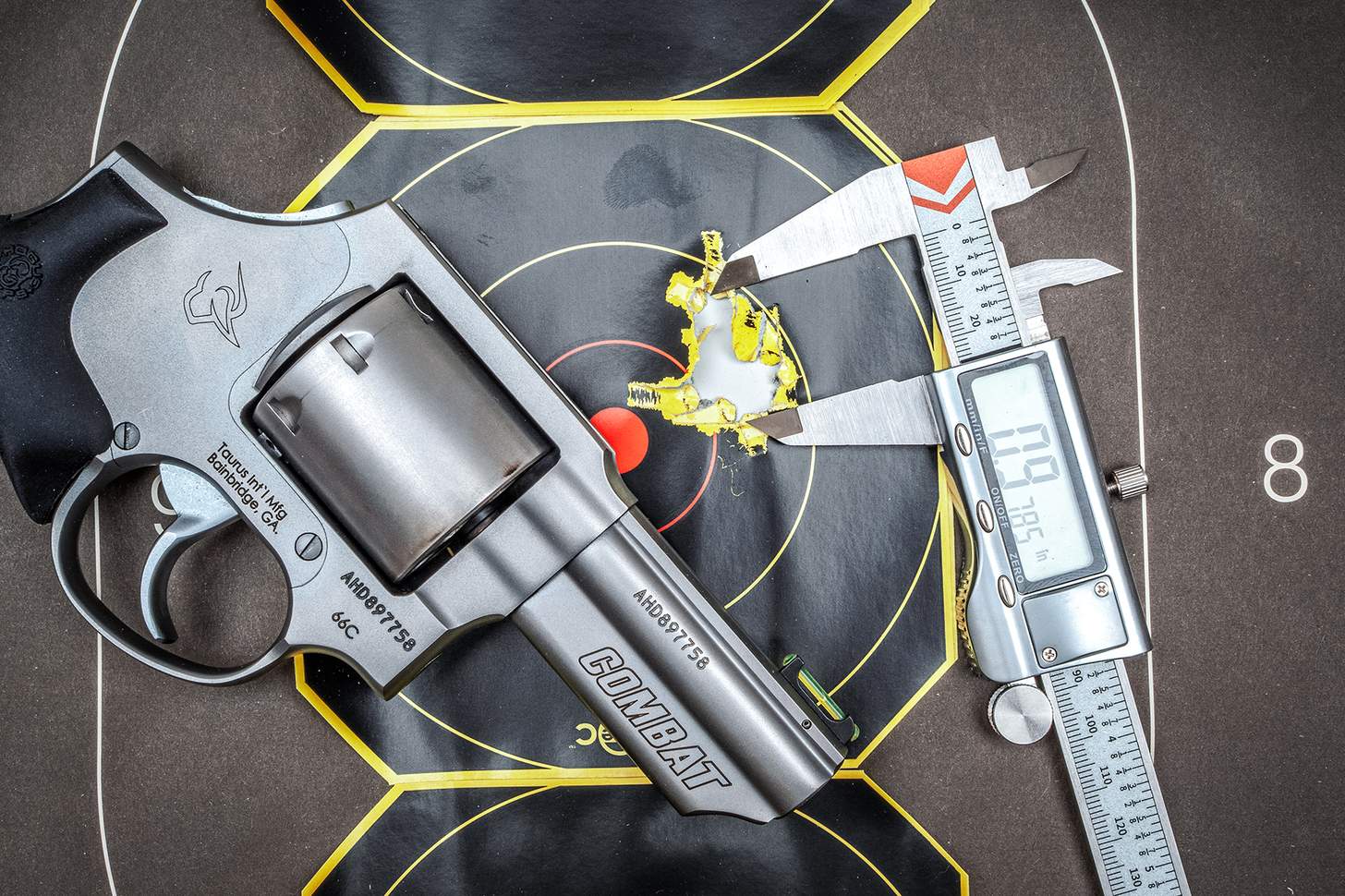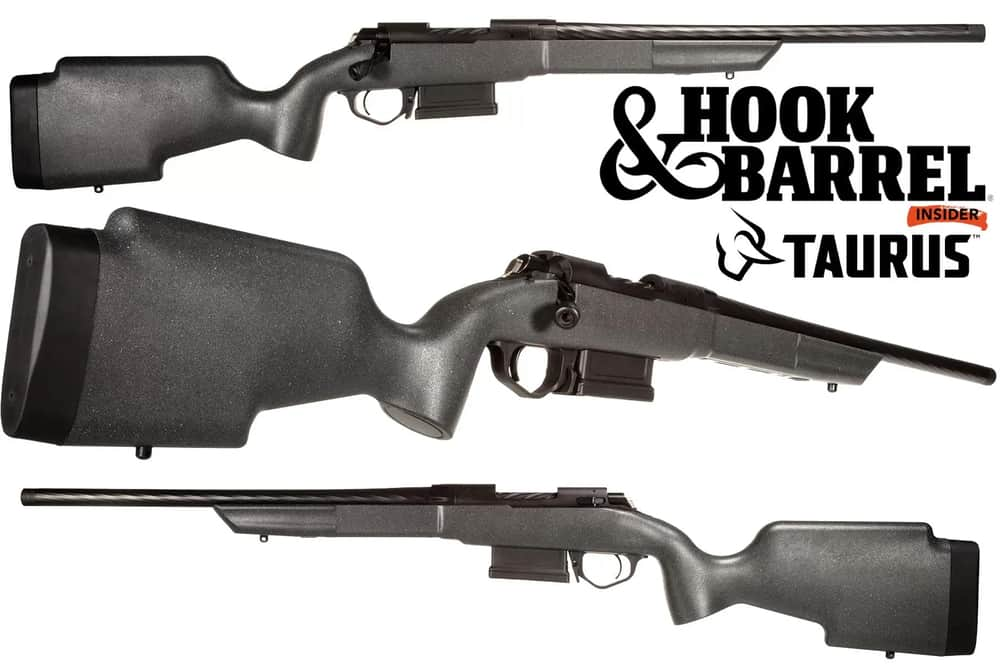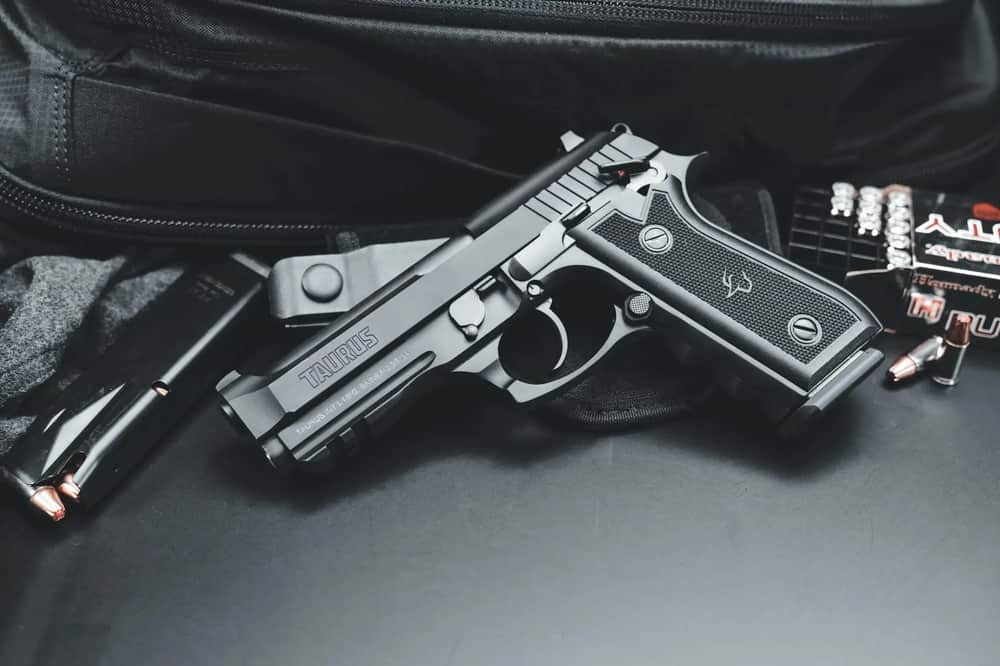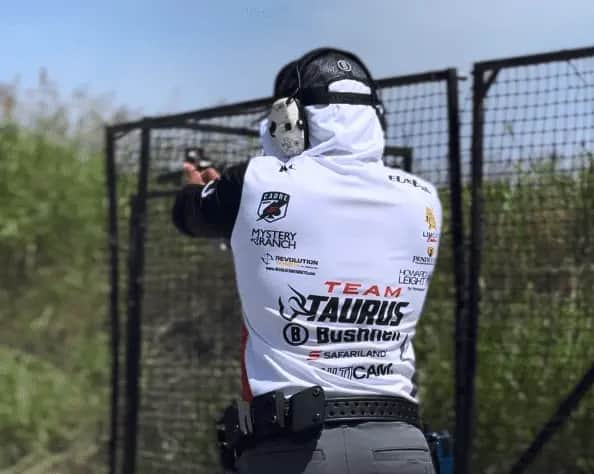When it comes to self-defense handguns, there’s no questioning the overwhelming popularity of semi-automatic pistols. Their main advantage is a higher round capacity than revolvers. However, revolvers have advantages of their own, and in today’s modern world, they still have a place in your rotation. We will look at some of these advantages while we also test and review the new Taurus 66 Combat in .357 Magnum.
Combat Ready
The well-constructed revolver has quite a few attributes that lends itself to being an exemplary combat, or at the very least, defensive weapon. The following are some of the key advantages of a revolver over a comparably sized semi-automatic pistol.
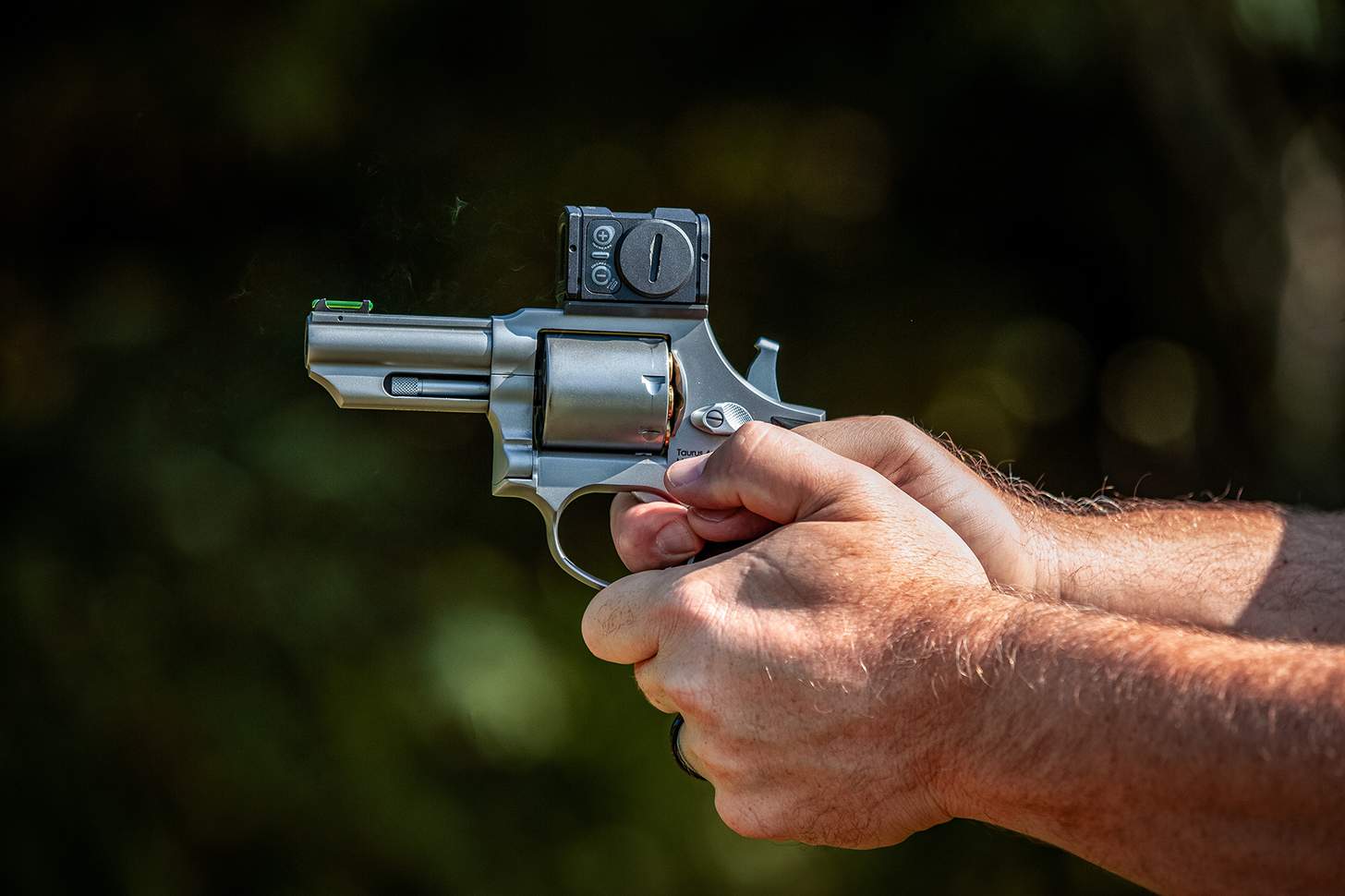
- The barrel does not move as with a semi-auto, thereby typically making a revolver more accurate.
- Since the rounds are not stored in the grip like a semi-auto, a revolver is generally able to accept larger and more powerful rounds.
- Pressing the barrel directly into an aggressor will not cause the revolver to go out of battery as would occur with a semi-automatic pistol.
- Revolvers can generally be fired while still in a coat pocket since there’s no need for extra space for a slide to cycle.
- Revolvers are less finicky with ammunition since there’s no balancing act required to get a slide to cycle or for the round to feed. If the round fits, it will fire—as long as the round itself is good.
- Revolvers are the definition of simplicity when it comes to loading and operation. Even an absolute novice can figure out how to load and fire it in short order. There are no safeties or other controls to confuse the newbie.
In short, revolvers have a lot going for them, especially with new users, though there are a couple of disadvantages. As mentioned earlier, semi-automatics typically can carry more rounds than a revolver (depending on size) and revolvers are slower to reload. Speed loaders can assist in this area, but even they are still not as fast as using a magazine for a reload.
Enter the Taurus 66 Combat
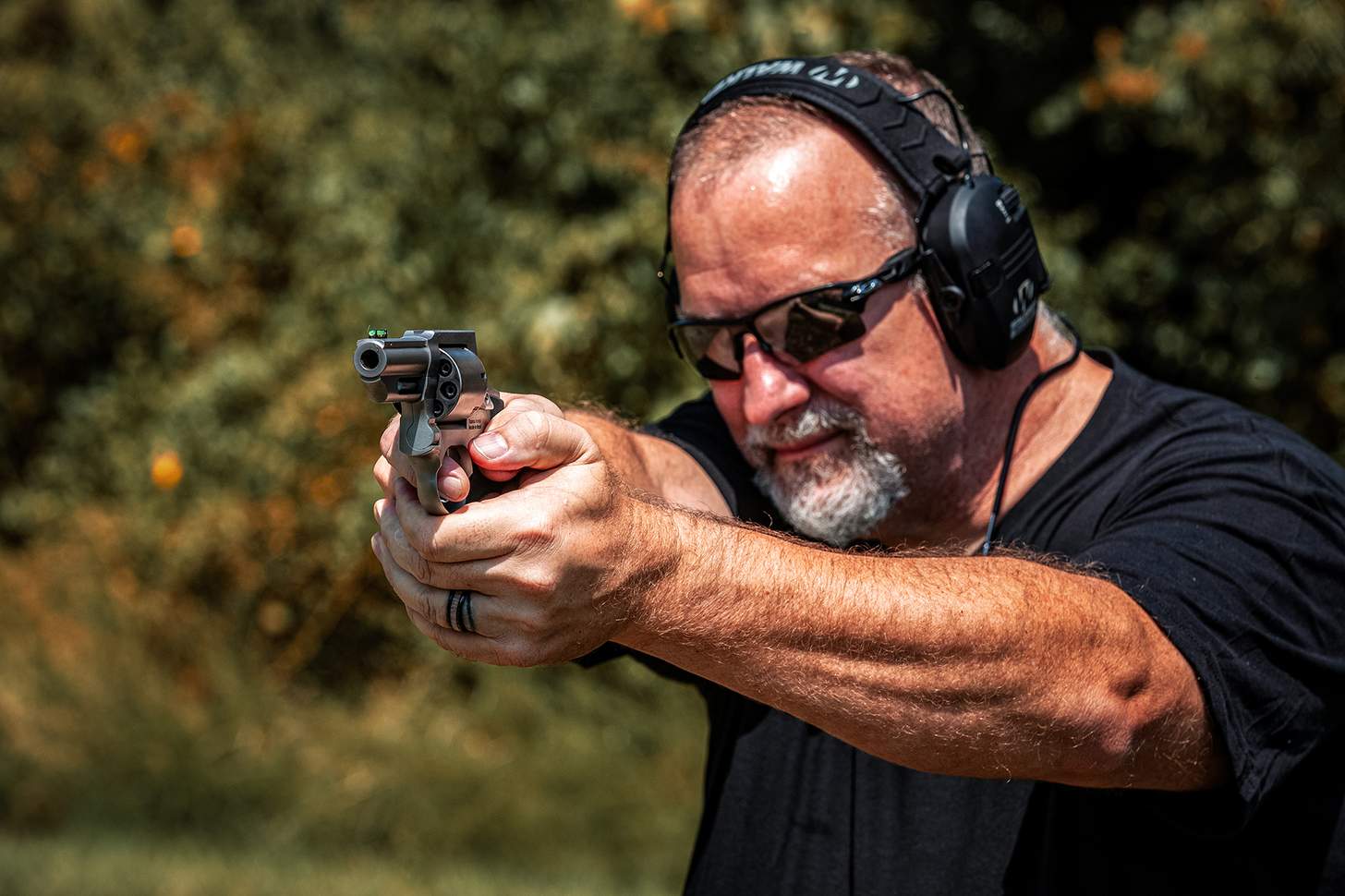
The new Taurus 66 Combat is a medium-frame revolver that’s fairly simple in its presentation of features. There are no interchangeable backstraps, decockers, trigger safeties or anything else to complicate the shooting process. However, there has been thoughtful consideration given to the necessary features of the 66 Combat.
For example, the 66 Combat has a DAO (Double Action Only) operating system. This means that the bobbed hammer cannot be cocked for that lighter, single-action trigger pull. Every trigger pull has a relatively heavy throw that offers some degree of safety for the user since the heavier pull generally requires an intentional effort.
However, the folks at Taurus have “combat tuned” the trigger so that it is lighter than most double-action trigger pulls, and it has a very smooth transition without that hitch you often find in the middle of the pull with other mass-produced revolvers.
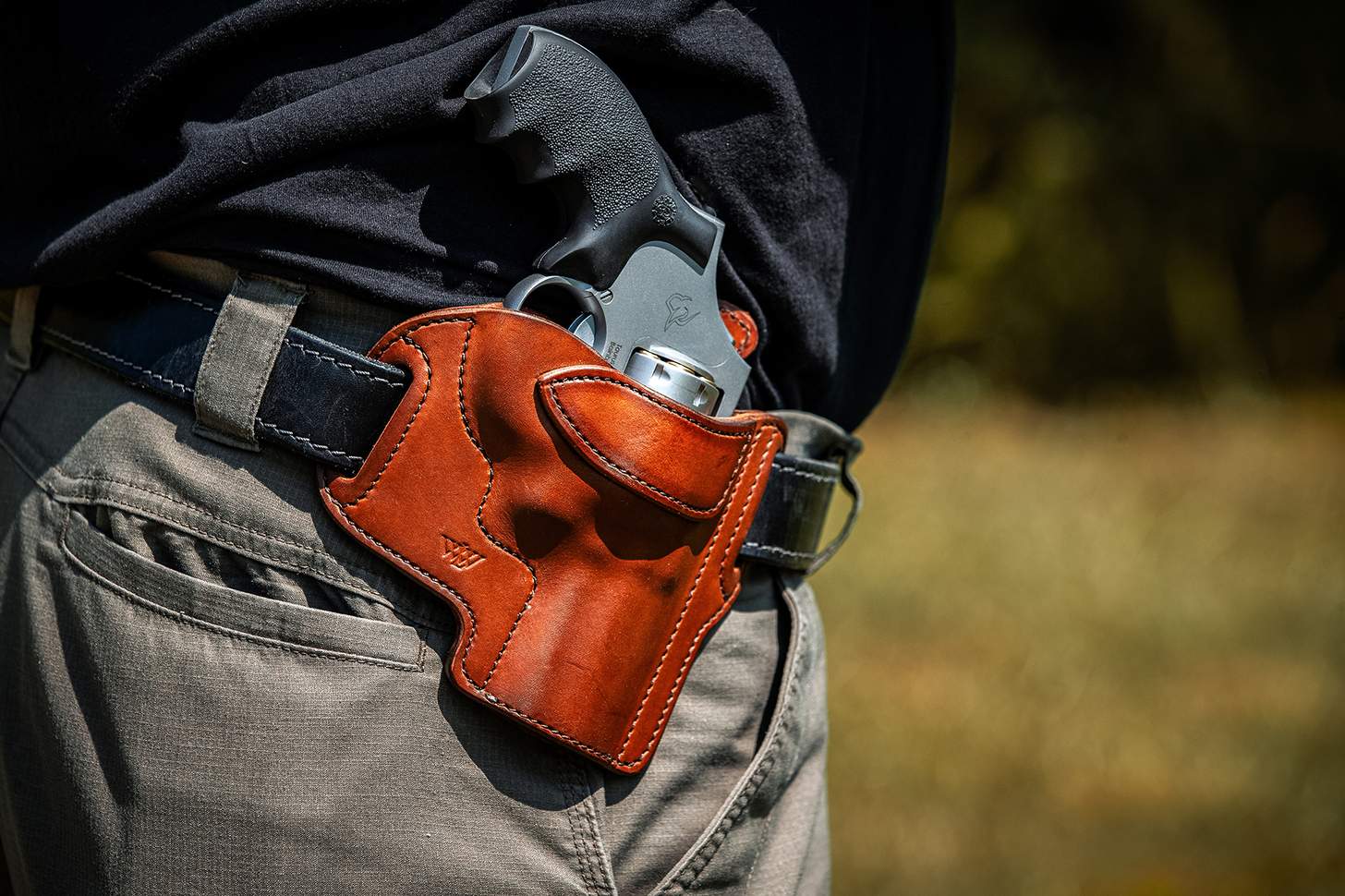
The 66 Combat has a very sleek and professional style about it. The major components like the frame, barrel and cylinder are fashioned from stainless steel with a matte finish to the package. At the front of the barrel resides a fiber-optic front sight that offers high visibility in daylight which you can see down the integral rear groove sight channel. There is no rear sight per se, but the way that the sight channel is fashioned makes the 66 Combat easy to align on target.
The barrel itself sports a French border at the top for a little sex appeal and there are top serrations for both styling and to help mitigate glare. Behind the barrel resides a chamfered and unfluted seven-round cylinder that offers extra strength while also enhancing the revolver’s presentation.
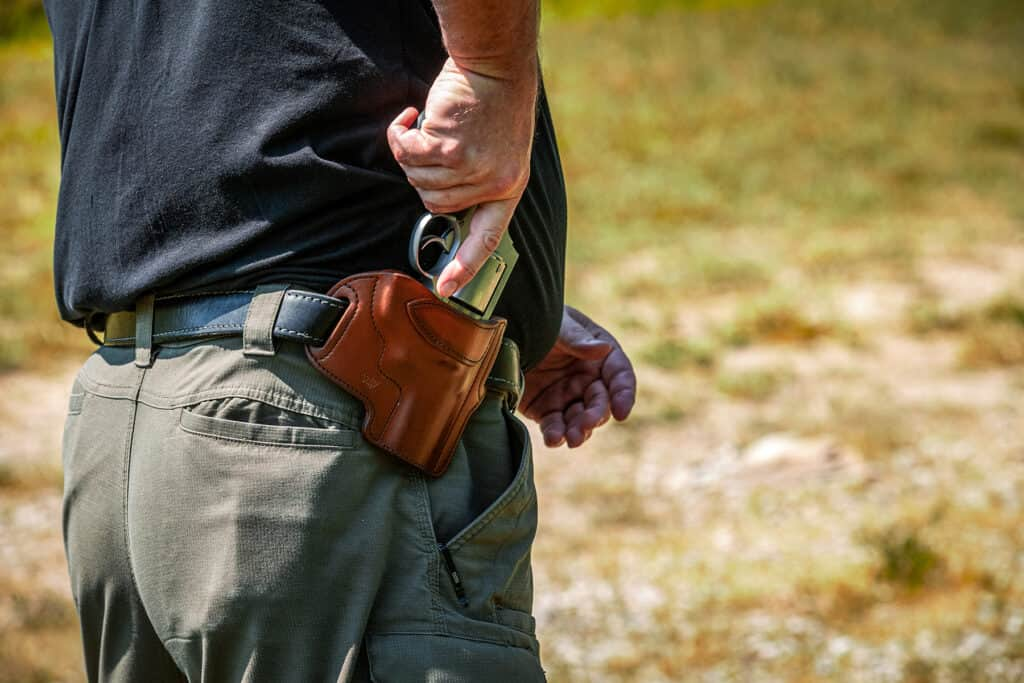
Finally, rounding out the package is a compact Hogue rubber grip with a bit of texturing for added recoil control. To be honest, I’m not usually a fan of a bare, steel backstrap on a .357 Magnum, but since the 66 Combat is meant to be concealed, it’s a necessary compromise to reduce bulk and printing under a garment.
A Red-Dot-Ready Revolver
The Taurus 66 Combat is optics-ready. Taurus makes plates for the 66 Combat’s footprint, and they're available on shoptaurus.com. Of note, plates for Taurus' Judge T.O.R.O. are a 1:1 fit so long as they're the official Taurus plates and not aftermarket.
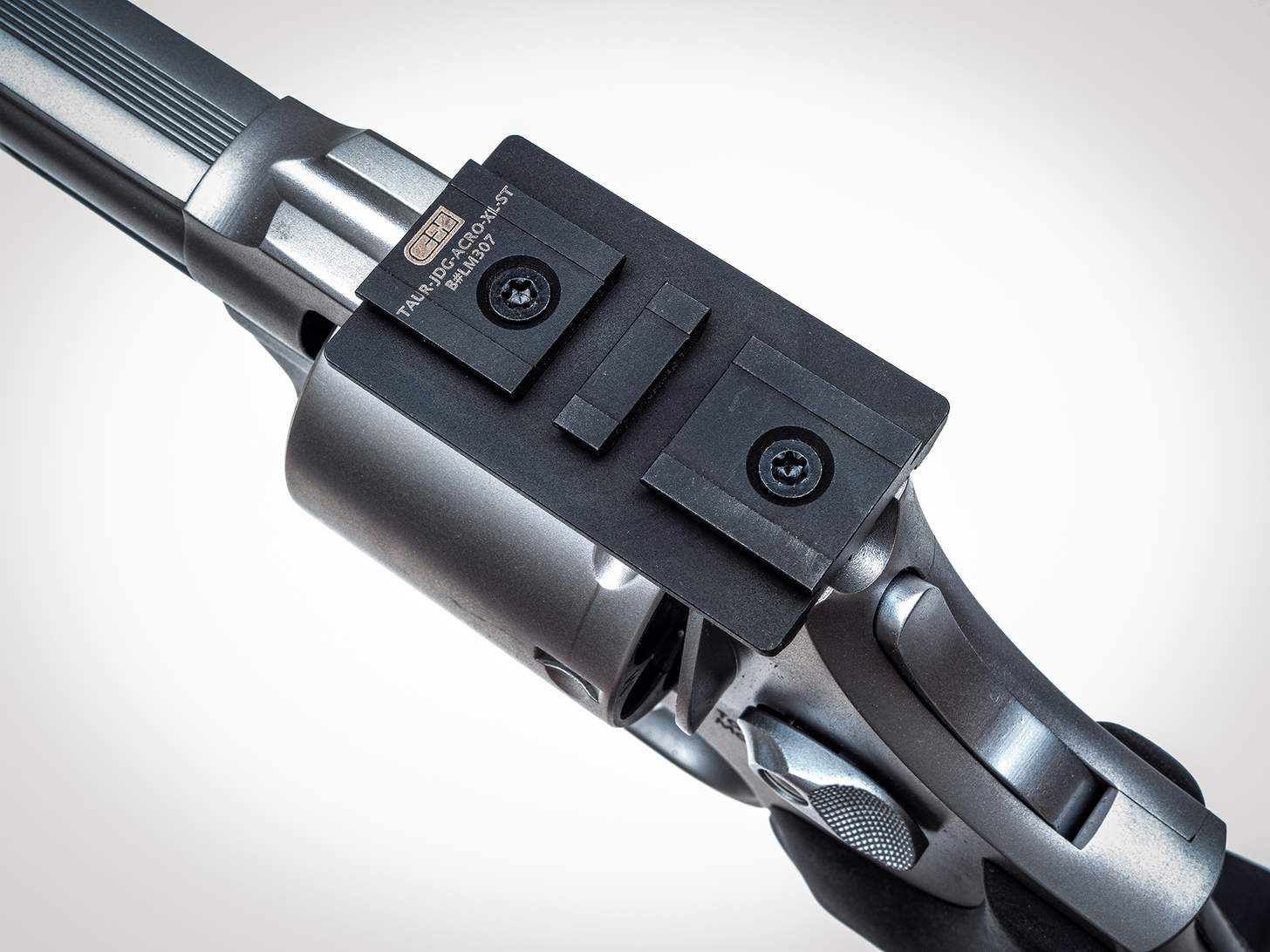
Personally, I have really liked the C&H Precision plates I have bought in the past for some of my other handguns, and I reached out to them to see if they could help me out with this review. They sent me the plate and requisite screws to mount optics that fit the Aimpoint Acro footprints.
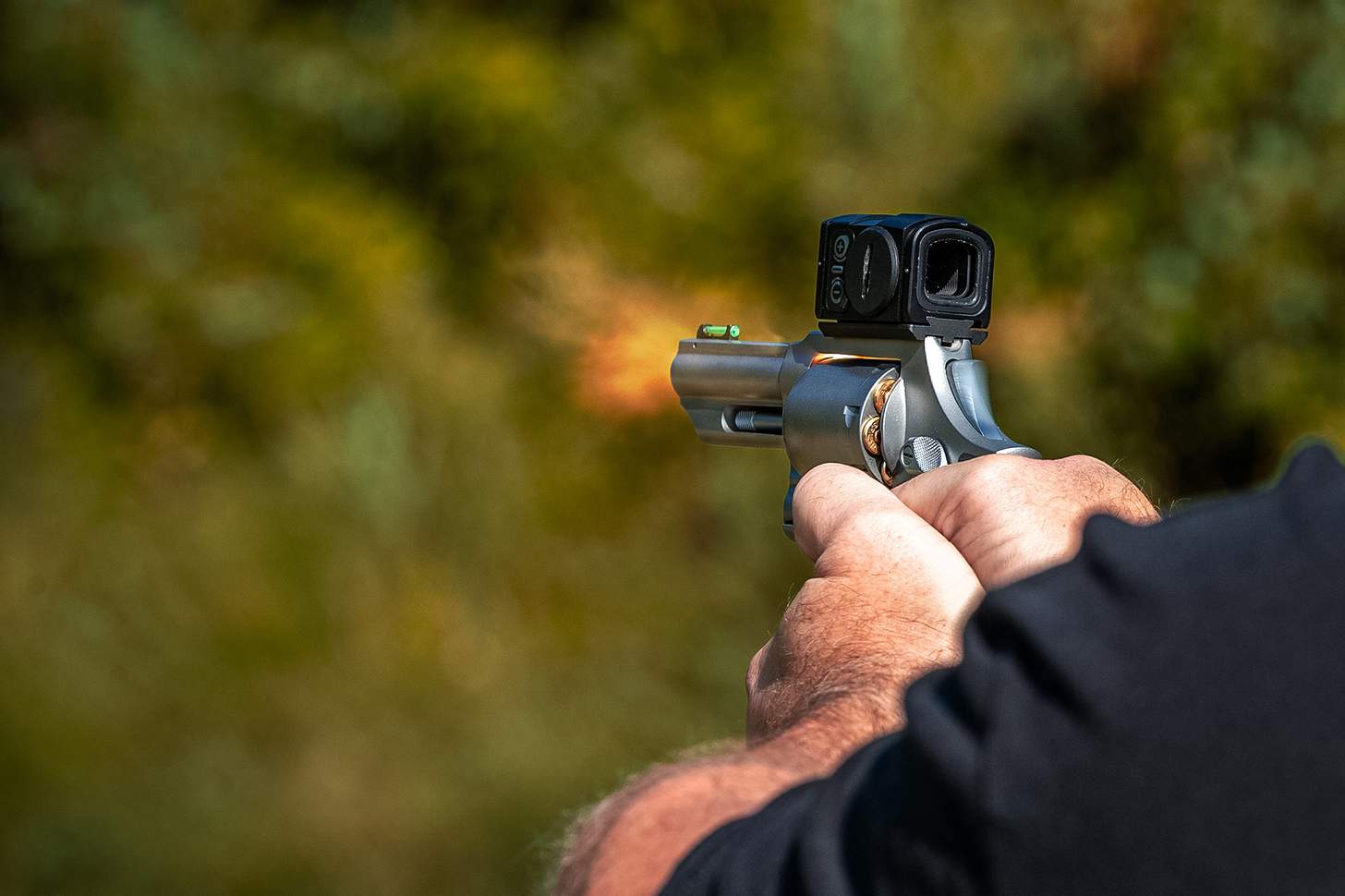
Taurus 66 Combat on the Range

Shooting the 66 Combat was a pleasant experience, especially where trigger control is a concern. My buddy Jamie (an LEO) is a big DAO fan for both revolvers and pistols, so I had him try it out with me. We paired the 66 Combat up with a custom Wright Leather Works holster I had made for a 3-inch GP100 and it fit perfectly. It also worked well in a Miami Classic II shoulder holster for a Smith 686, so there’s plenty of holsters available even before the 66 Combat is launched.
Both of us were impressed with how smooth the trigger throw was for a production pistol. It was a silky pull with no hitch in the middle that you often feel with most revolver. With my Wheeler Engineering trigger gauge, I got an average of 8.87 pounds of pull weight before the break, but it didn’t even feel that heavy. The wide trigger face had plenty of surface area for comfort and leverage for easy and accurate shooting.
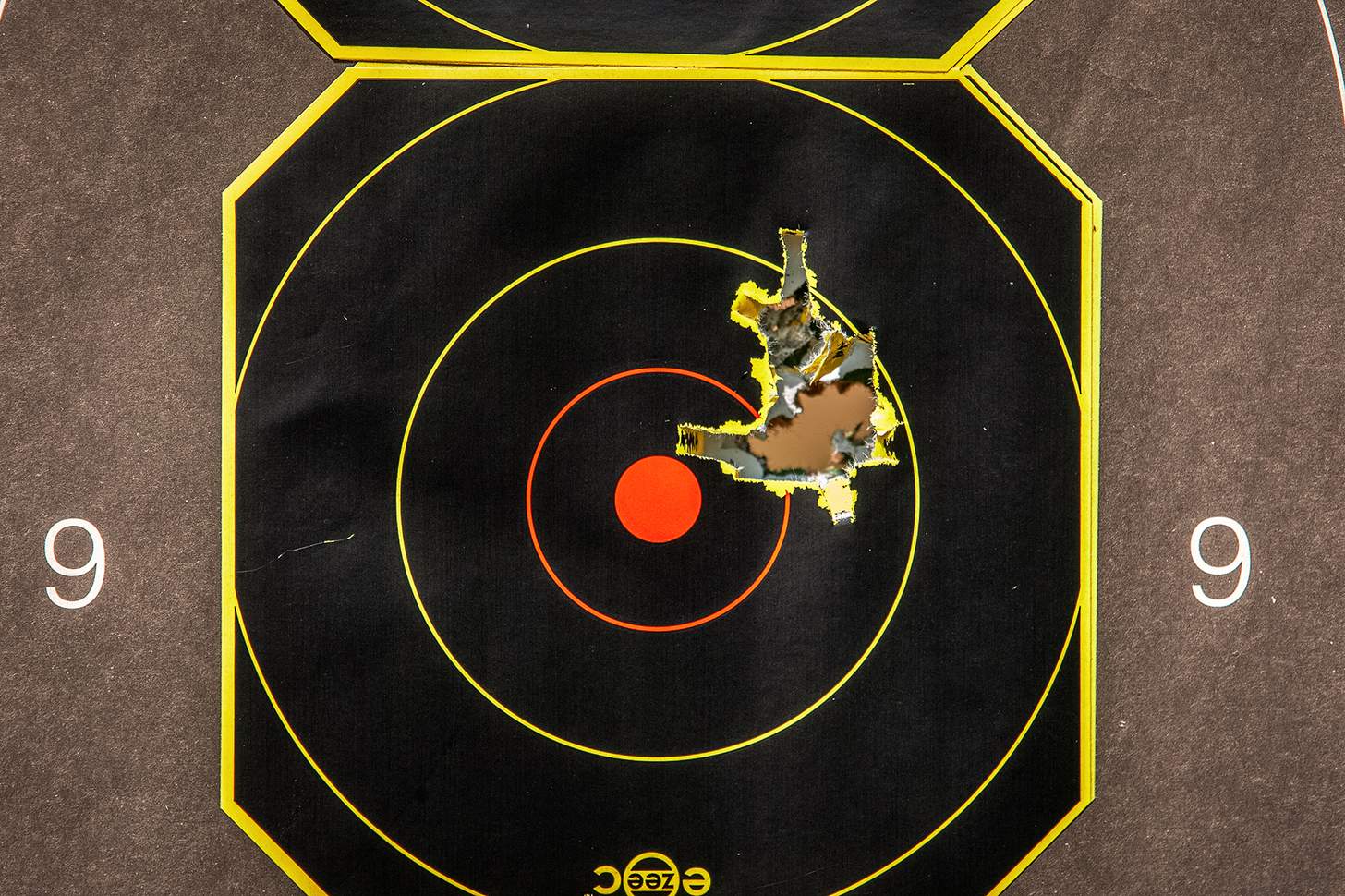
Speaking of accuracy, the 66 Combat was on point in this category as well. I typically test handguns with a barrel less than three inches at 7 yards, but since I had the Aimpoint Acro P2 mounted, I went with 15 yards instead. The best group shot during our testing had four shots going into one hole with the fifth shot just a touch outside of that hole.
The group measured just .90 inches outside edge to outside edge and if you subtract out the .357 caliber, you get a group of just .543 inches. That group was shot with Lehigh Defense’s 120gr. XD load, but other loads we tried performed quite nicely as well as you can see in the accompanying table.
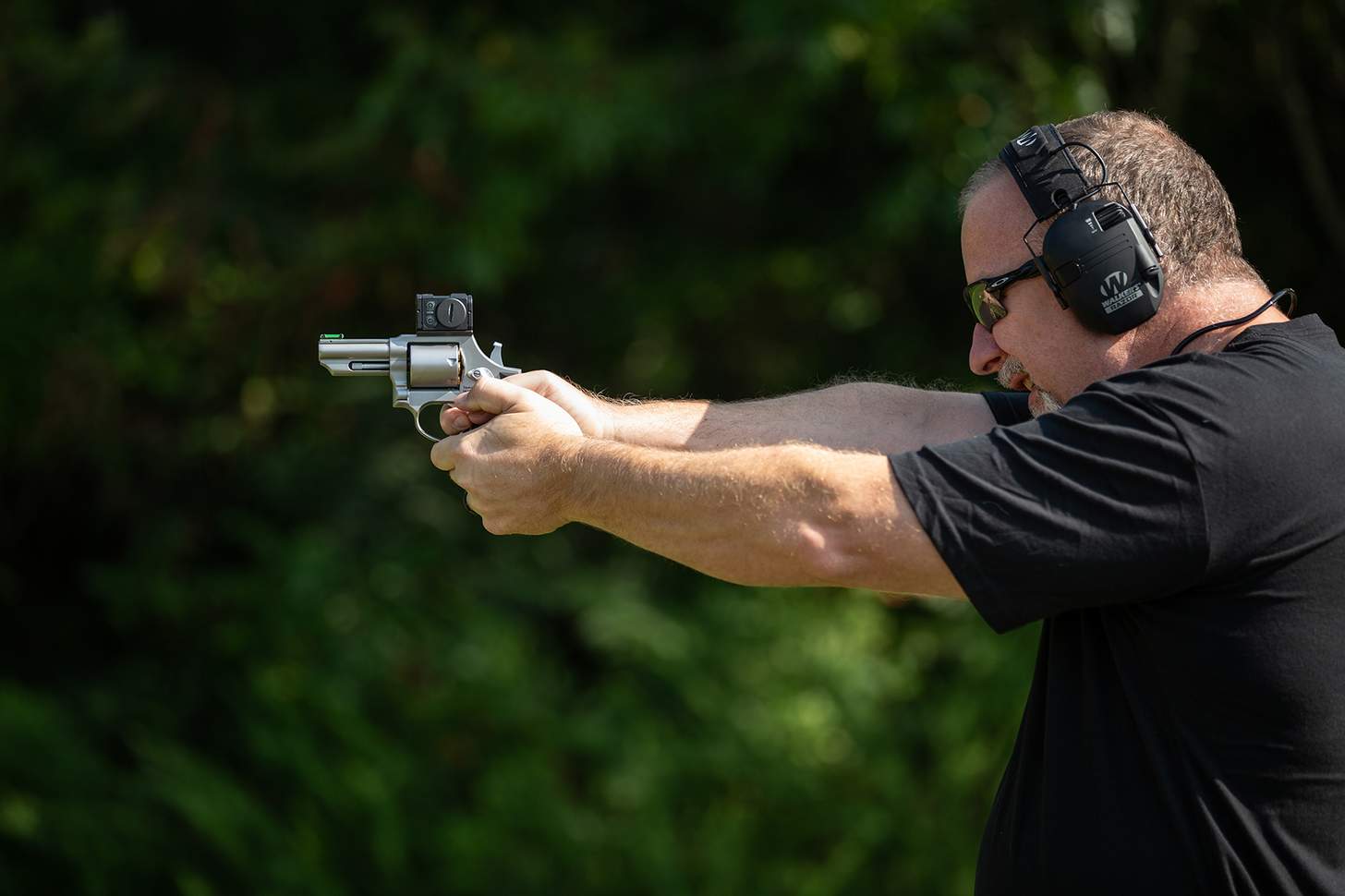
There’s not a lot to talk about with reliability. Revolvers have been around forever, and the companies pretty much have them down pat. There were no issues at all with the 66 Combat; the cylinder turned smoothly and there were no problems with case ejections, but make sure you clean the revolver after each range session. Carbon and other debris can build up over time and gum up the works.
The 66 Combat was actually more comfortable to shoot than I thought it would be. The rubber Hogue grip offered plenty of control and the heft of the revolver helped tame recoil a good degree. I even tried out Buffalo Bore’s 180-grain HC LFN outdoors load and had no problems managing the recoil while I quickly dumped seven rounds into the target. Shooting that load all day is probably something you wouldn’t want to do, but the shooting experience is much more pleasant than you would expect with the naked backstrap.
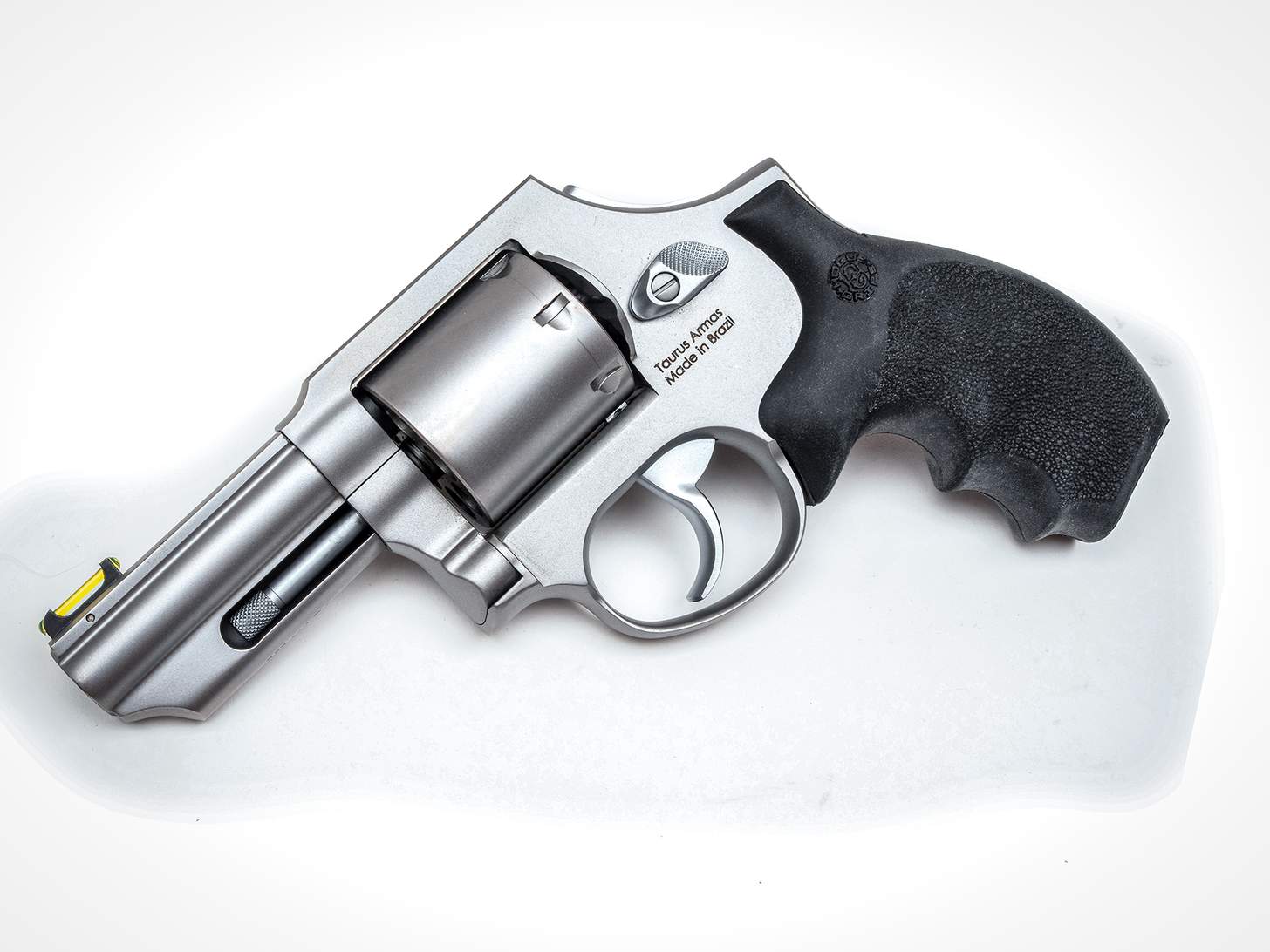
Final Round
I have to say that I really liked the 66 Combat overall. It’s well designed for a concealed-carry defensive revolver with its bobbed hammer and high-visibility front sight. Its robust build quality and extra heft makes it fun and comfortable to shoot, especially with .38 Special or .38 Special +P loads. But once things get serious, you can load up the .357 Magnum rounds for the excellent terminal performance for which the .357 Magnum round is known. On top of that, you can already bank on the 66 Combat to accurately deliver that payload downrange.
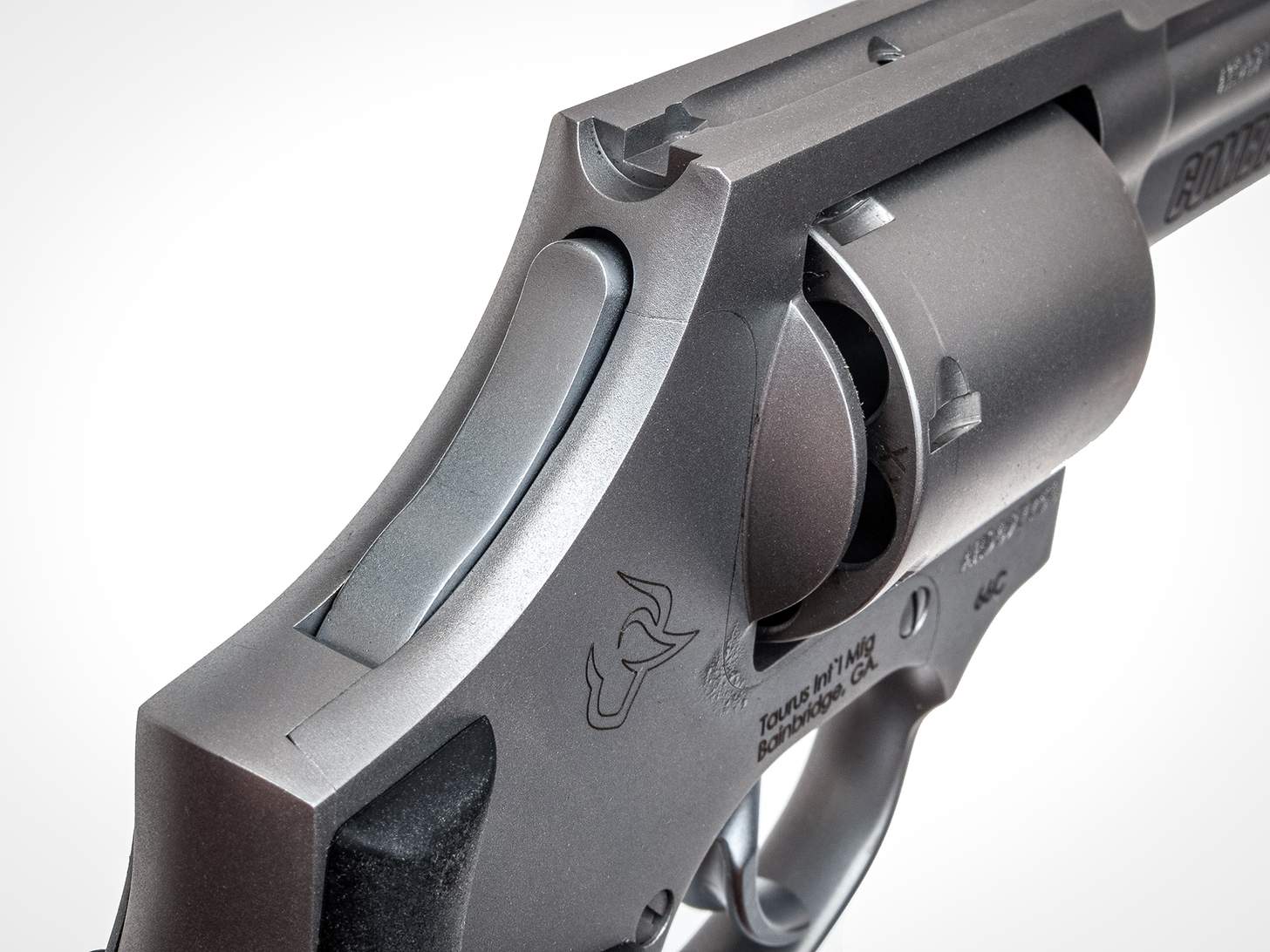
The 66 Combat isn’t exactly what you would call cheap. It has an MSRP of $969, though that’s to be expected for an all-steel handgun in this day and age. However, if you’re a fan of revolvers, especially those carried concealed or for personal defense, I’d highly recommend you check out the new 66 Combat. It has a lot going for it and I think you’ll be as impressed as I was once you have it in hand.
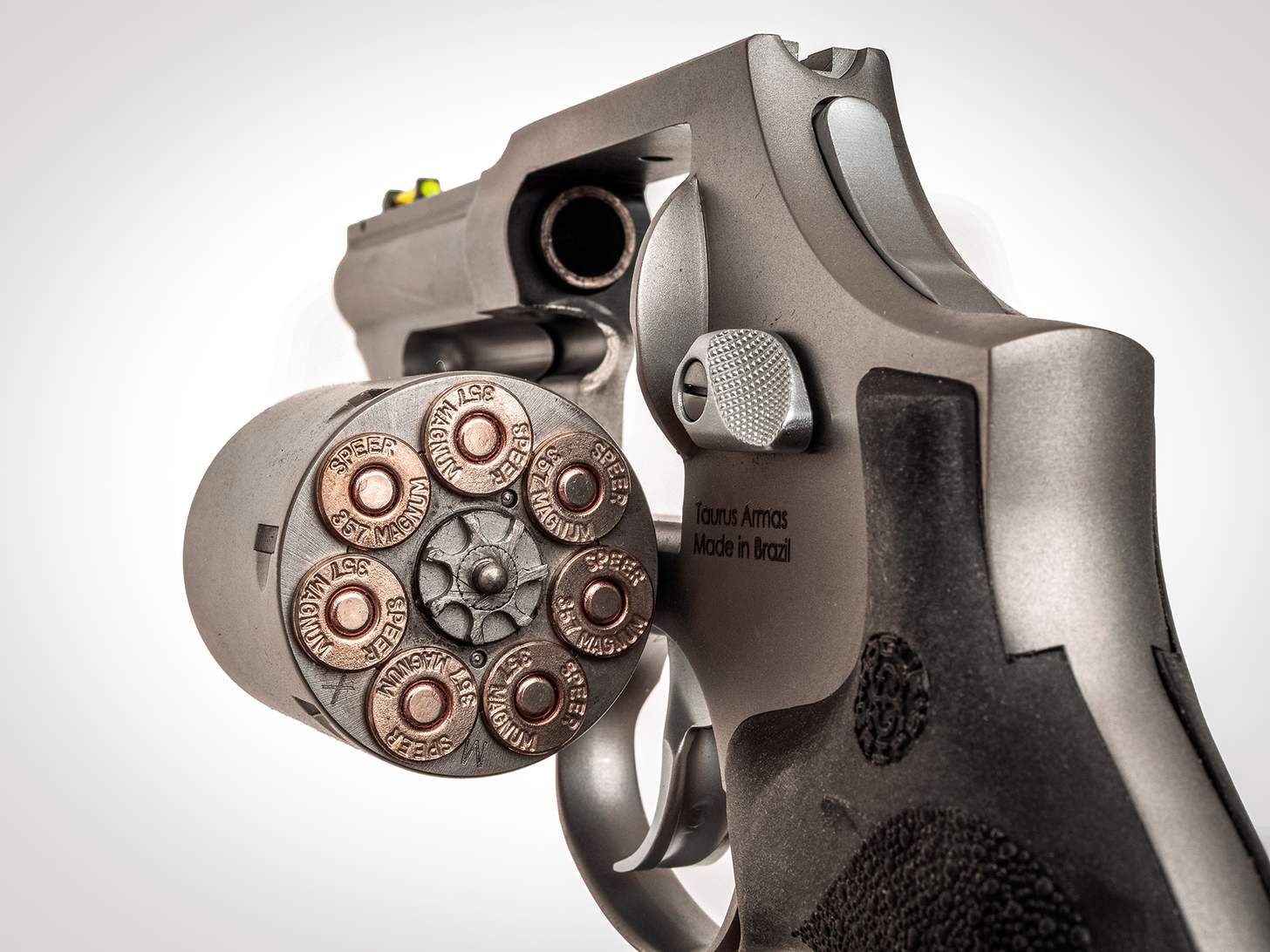
Taurus 66 Combat Specifications
Action: Double Action Only
Barrel: 3.00 inches
Overall Length: 8.4 inches
Caliber: .357 Magnum / .38 Special
Capacity: 7
Finish: Stainless
Weight: 36.5 ounces
Sights: Fiber-Optic Front
Optic Ready: Yes
Grips: Hogue
MSRP: $969
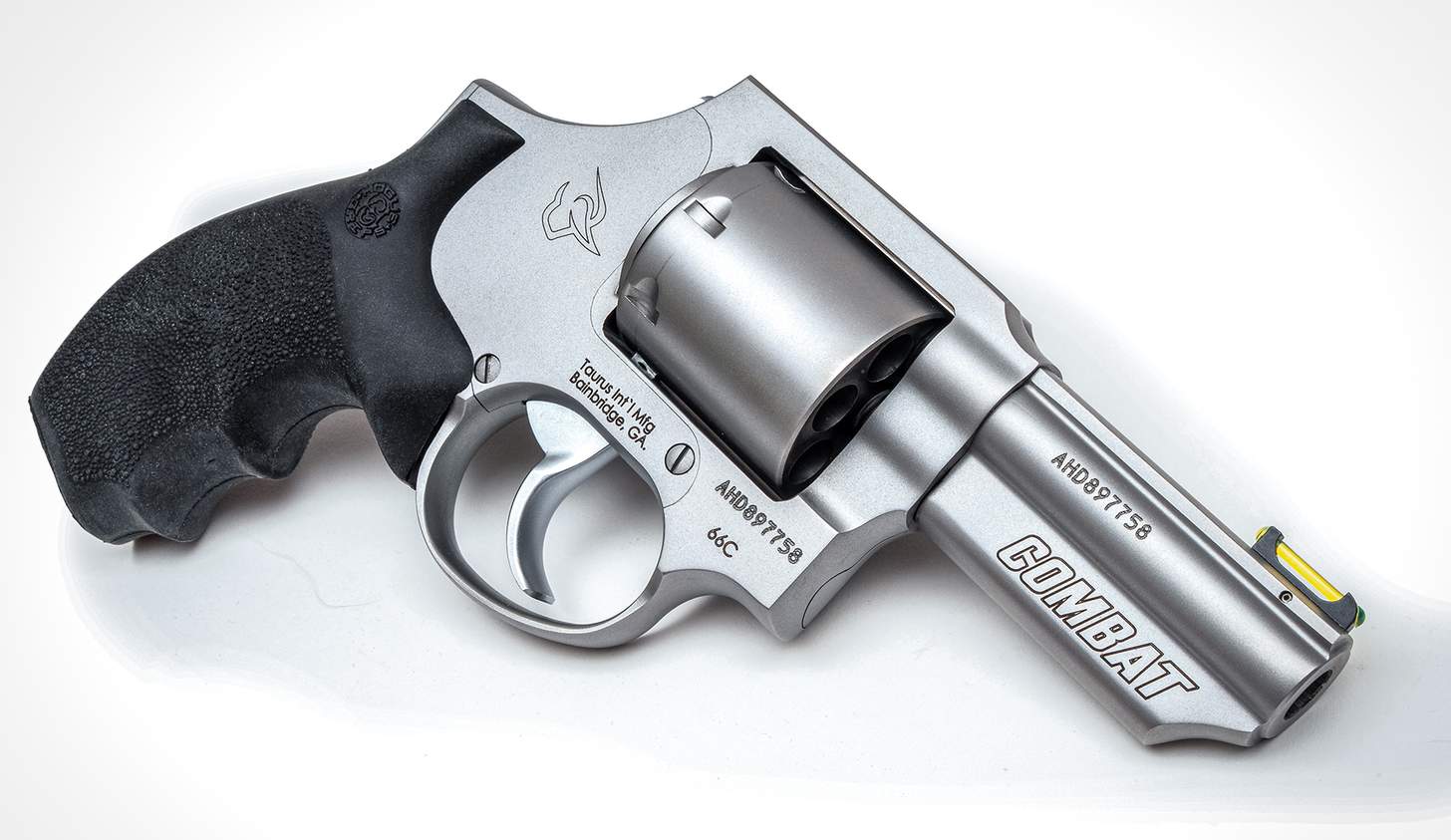
Taurus 66 Combat: Performance
| Ammo | Accuracy Avg/Best | Velocity (fps) | |
| Buffalo Bore 180gr. HC LFN | 1.14" / 0.93" | 1,257 | |
| Hornady 158gr. XTP | 1.23" / 1.04" | 1,242 | |
| Lehigh Defense 120gr. XD | 0.83" / 0.54" | 1,377 | |
| Lehigh Defense 105gr. CF | 1.03" / 0.86" | 1,412 |
Bullet weight measured in grains and accuracy in inches for three, five-shot groups at 15 yards.
